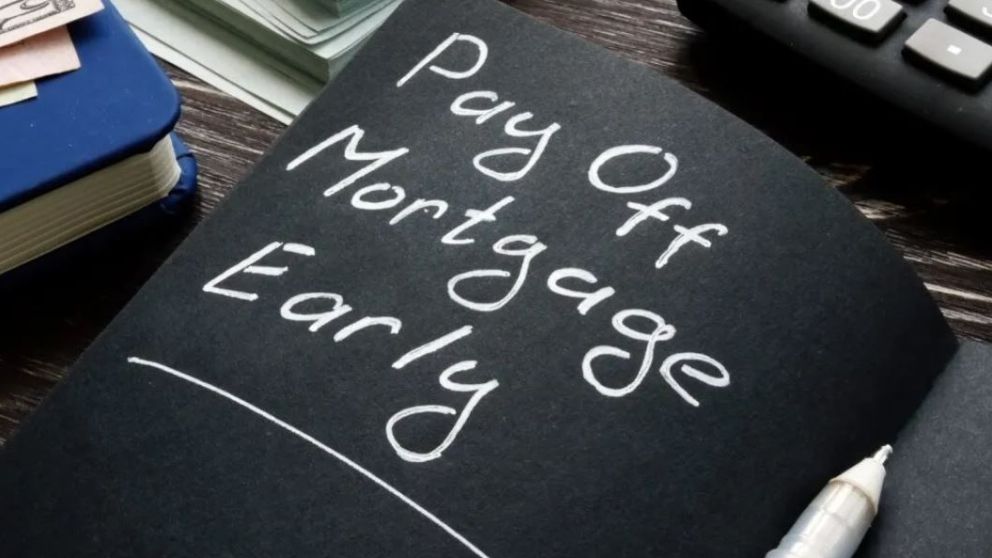5 Ways to Pay Off Your Mortgage Early

Originally Published on Bankrate.com on October 18, 2022
Written by Ruben Caginalp, Edited by Suzanne De Vita, Reviewed by Kenneth Chavis IV
5 Ways to Pay Off Your Mortgage Early
Some homeowners are eager to get out of their mortgage early, with reasons ranging from eliminating the psychological pressure of debt to slashing interest payments. For retirees, paying off a home loan early can help increase cash flow. This is especially beneficial when transitioning to a fixed income.
Whatever your motivation, paying down your mortgage ahead of time reduces the amount of interest you pay on the loan. This can be a substantial savings. Here are some early payoff strategies to help you achieve that goal.
1. Make extra payments
There are two ways you can make extra mortgage payments to accelerate the payoff process:
Biweekly mortgage payments
The first way is to split your monthly mortgage payment in half and make biweekly payments instead. By doing this, you’ll end up making the equivalent of 13 months of mortgage payments in one year, instead of 12, and saving a bundle in interest. This tactic might be easy for some homeowners because it’s barely noticeable in the monthly budget.
Consult with your lender or servicer first to confirm whether it accepts biweekly payments (most do). If not, it’s up to you to set aside those biweekly payments and lump them into a single payment each month. The benefit of the extra annual payment is still there, but without the convenience of the lender allowing you to schedule payments every two weeks.
Extra monthly payment
The second approach is to pay extra against the principal each month or make an extra principal-only payment annually. It can also save you tens of thousands of dollars in interest over the life of the loan.
Let’s say your 30-year mortgage is for $250,000 and your interest rate is 4 percent. If you make an additional $100 monthly payment to the principal balance of your loan, you’ll shave off four years and $27,957 in cumulative interest payments from your mortgage.
This can be a better tactic than refinancing, as it doesn’t lock you into a payment. If for some reason you can’t add more to your monthly mortgage payment, you won’t be penalized.
If you go this route, make sure to check with your lender that the payments will be applied in the correct way to reduce the principal, not prepay the interest. You’ll also want to make sure the lender understands the extra payment is not for the next month’s mortgage payment.
2. Refinance your mortgage
Refinancing your mortgage to pay it off early only makes sense if you can get a lower interest rate or shorten the loan term. Be mindful that there are costs associated with refinancing, so you’ll want to make sure the savings outweigh those costs.
Refinancing into a shorter-term loan, such as switching from a 30-year mortgage to a 15-year mortgage, can also help bring down your interest rate while putting you on the path to an early payoff. However, with a shorter term, your monthly payment will be higher, which could stretch your budget too thin. You can use Bankrate’s calculator to compare payments and total interest between 30-year and 15-year terms.
3. Make lump-sum payments toward your principal
You might also want to make lump-sum payments to your principal any time you get a financial windfall or unexpected influx of cash. This could be a bonus at work, tax refund, inheritance or funds earned from the sale of valuables.
With some mortgage servicers, you must specify that excess payments are to be put toward the principal. Check with your servicer if you are unsure how lump-sum payments will be applied.
4. Recast your mortgage
Mortgage recasting is different from refinancing because you keep your existing loan, pay a lump sum toward the principal and your lender then adjusts your amortization schedule to reflect the new balance. This will result in a lower monthly payment, but your loan term and interest rate will stay the same.
One major benefit to recasting is that the fees are significantly lower than refinancing. Usually, mortgage recasting fees are between $200 and $300 (contact your lender to request the service and confirm the costs). Plus, if you have a low-interest rate, you get to keep it. On the flip side, if you have a high-interest rate, refinancing might be a better option.
Note: FHA and VA loans can’t be recast.
5. Get a loan modification
If your mortgage payments are unaffordable but you want to get back on track and potentially pay the loan off early, consider a home loan modification. Generally reserved for borrowers experiencing financial hardship, a loan modification entails the lender adjusting the interest rate or loan term to help bring the loan current.
With this option, you could save on interest and pay the loan off faster. There could be consequences for your credit, however, depending on how your lender or servicer reports it to the credit agencies, so be sure to discuss this with your lender upfront.
If you are interested in selling real estate, please allow Target Auction Company the opportunity to detail the benefits of our auction platform and provide you with a free consultation. We can offer the information and advice needed to make a logical decision regarding the sale of your property. We can be reached by email, at 1-800-476-3939 or visit us at www.TargetAuction.com.














